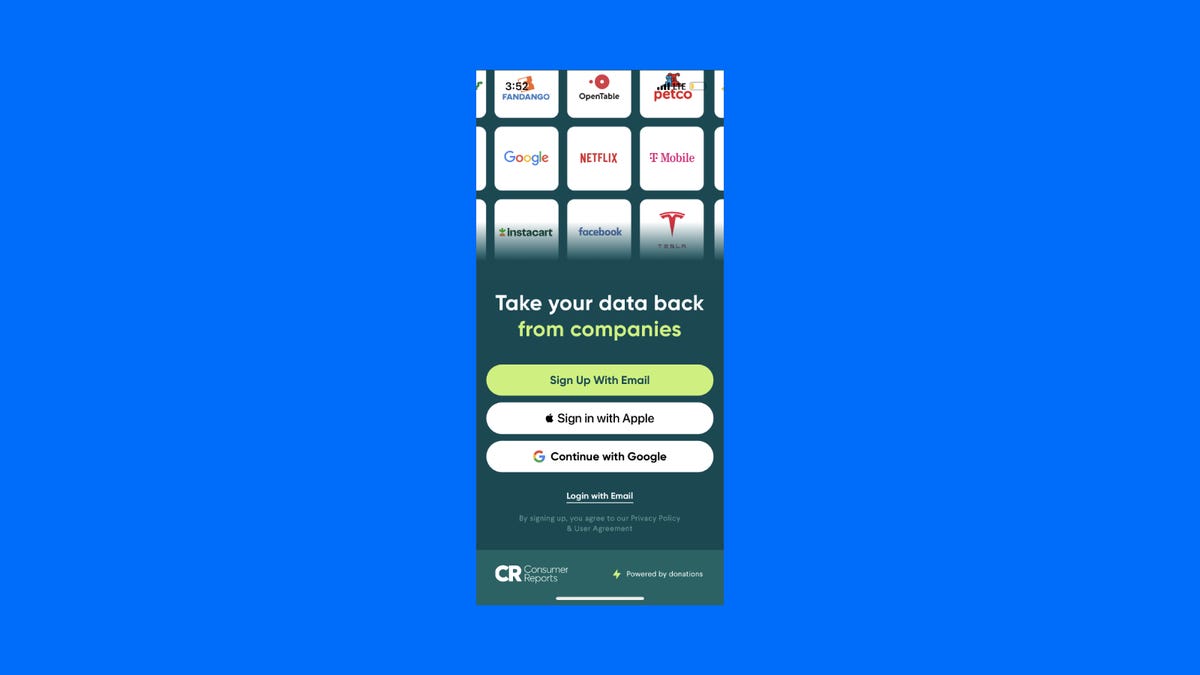
The more you use the internet, more pieces of your online personal data get scattered all over the place. Every time you sign up for a new social media platform or buy something online, for example, you give those companies bits and pieces of your personal information.
Your information gets collected by both companies and data brokers — which sell it to other companies who can use it to sell ads targeted at you. If you’re anything like me, you gave out your online data willy-nilly when signing up for rewards programs, for example, without knowing what you were really doing. And you’re paying for it now with ads that track you across the internet. But Consumer Reports now has an app called Permission Slip that can reach out to companies on your behalf to order them to stop selling your information.
Read on to find out how exactly to use Permission Slip to reassert some control over your online data. Plus, here are six tips to help keep your data private and why you need a password manager.
What is Permission Slip?
To help you claw back a bit of your personal data, some states have passed legislation that allows you to exercise some control over what happens to it. Depending on the state, you can prohibit data brokers from selling your data or delete your online data outright. But the process of controlling your data on websites can be confusing, and it’s often unclear whether you’ve opted in or out of selling your personal data. And due to the nature of how your data is shopped around, it could be nearly impossible to locate all of your online data and protect it.
This is where services like Consumer Reports’ Permission Slip come in. Permission Slip does the legwork of collecting the places that might have your data, including more than 100 companies that use your personal information. All you have to do is submit your request for your info to either be deleted outright or simply not sold any more.
How do I use Permission Slip?
To get started using Permission Slip, all you have to do is sign up for the service with your email address. I decided to sign up with the email address that I frequently use when signing up for rewards programs or making accounts online — that way I would be addressing most of the places that could be selling my data.
After signing up, you’ll be presented with options of popular companies and data brokers that could have your information. If you think that company might have your data, and you want to do something about it, select Learn More & Take Action. If you don’t think this company has your data and you would like to no longer see it as an option, select Hide and it won’t clog up your suggestions.
Once you’ve selected Learn More & Take Action you will be taken to a screen that shows you what sort of data the company usually collects, and what your options are. Depending on the company and the state that you live in, you could have the option to prohibit companies from selling your data or to delete your account outright. It’s important to note that if you’re deleting your account and you have a rewards program with that company, you will lose those rewards upon deletion.
Depending on where you live and the company you are dealing with, you can either order companies to stop selling your data or delete your account with that company entirely.
When you’ve decided whether you want to delete your account with a specific company or simply prohibit them from selling your data, Permission Slip will ask you a couple of questions that can help companies and data brokers correctly identify you and properly take care of your information.
After you input your personal info the first time, the process for continuing to remove your data is pretty simple. You will just scroll through Permission Slip’s suggestions, select companies that might have your info and then delete your account or prohibit the company from using your data.
Permission slip requires you to input some personal information to help the companies who have your data identify you so your request can be fulfilled.
It’s important to note that while Permission Slip is submitting the request on your behalf, you still might have to confirm the request directly with the company. It also might take a bit of time to have your request processed and your information deleted, so patience will be your friend during this process.
For more, here are the best internet providers of 2023 and the best VPNs of 2023.
